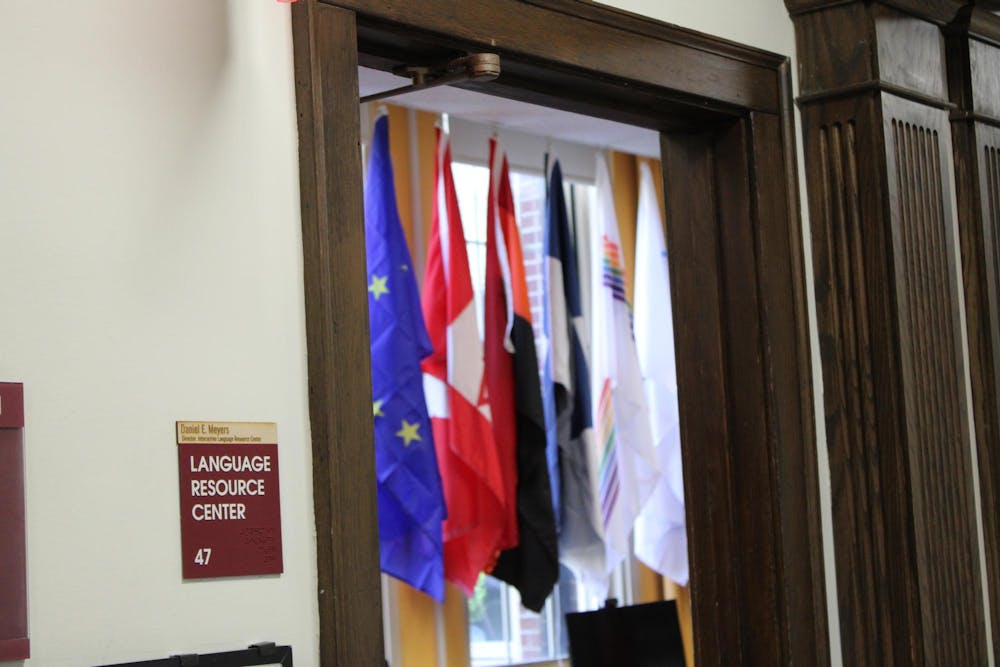One of Miami University’s newest majors in the humanities is coming at the cost of six others.
At a University Senate meeting on April 28, Senate passed a proposal for World Languages and Cultures to replace all undergraduate majors across Miami’s Department of French, Italian and Classics (FIC) as well as the Department of German, Russian, Asian and Middle Eastern Languages and Cultures (GRAMELAC).
Senate did choose to keep seven minors, though. Minors in Classical Studies, Chinese, French, German, Italian, Japanese and Russian, Eastern European and Eurasian Studies will continue to be offered following changes to the majors.
The proposal for World Languages and Cultures still needs to be approved by the Ohio Department of Higher Education before any further steps can be taken.
FIC and FRAMELAC developed the program in light of cut-backs made at Miami in 2023, when faculty were notified that low-enrolled programs would be eliminated.
Mark McKinney, a professor and the acting chair of FIC, said creating this new major was a collaborative process between the departments aimed at preserving both their respective faculty and the overall course content.
Enjoy what you're reading?
Signup for our newsletter
“It really was a joint project for everyone,” he said. “It would be a way for us to do what we care about, to teach [students] about other cultures.”
While McKinney said both departments rejoice in the possibility of having this new major, the program came with its share of compromise. Students can still specialize within the program, but some courses need to be restructured to accommodate a wider range of students. For instance, some upper-level courses, which used to be taught exclusively in a foreign language, will now be taught in English.
The changes coming to foreign languages and cultures at Miami have professors and students concerned about the direction the humanities are taking. Benjamin Sutcliffe, a professor of Russian literature, said the shrinking departments is a sign of a “natural attrition” of the humanities.
“When I started at Miami, there were five people teaching Russian language and Russian literature,” he said. “Now we are down to two. I’m the only permanent one.”
Like all of the other students enrolled in FIC and GRAMELAC, senior Charlie Fair has the chance to finish his degree without disruption from the merger. However, that hasn’t decreased his concern about the quality of a foreign language and culture education.
“It feels [like] we’re really making Miami that much less of a place by getting rid of this kind of cultural, historical and social enrichment,” he said.
Fair said he understands that lower-enrolled courses aren’t advantageous for universities that don’t want to lose money, but like other humanities professors and students, he also said profit isn’t the point of a liberal arts education.
“Does everything have to be a return on your investment?” he said. “Can we not have a liberal arts education for the sake of broadening the mind … and not learning to make more money or making the university more money?”
Fair also said that despite losing the more specialized majors, new students will always seize the opportunity to pursue their education.
“People who are legitimately interested in Russia or Eastern Europe or Ukraine or Central Asia, they'll be able to make do with what the language department, history department or political science department offers them,” Fair said.




